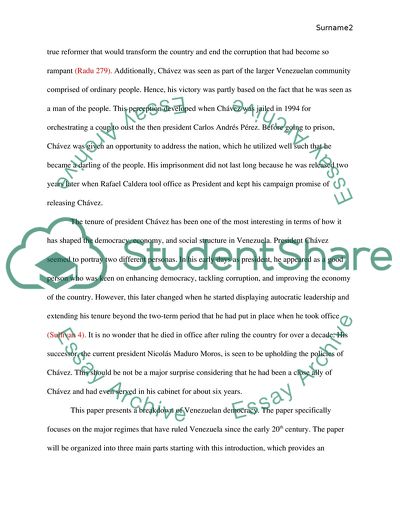Cite this document
(“Breakdown of Venezuelan Democracy Research Paper”, n.d.)
Breakdown of Venezuelan Democracy Research Paper. Retrieved from https://studentshare.org/politics/1688244-breakdown-of-venezuelan-democracy
Breakdown of Venezuelan Democracy Research Paper. Retrieved from https://studentshare.org/politics/1688244-breakdown-of-venezuelan-democracy
(Breakdown of Venezuelan Democracy Research Paper)
Breakdown of Venezuelan Democracy Research Paper. https://studentshare.org/politics/1688244-breakdown-of-venezuelan-democracy.
Breakdown of Venezuelan Democracy Research Paper. https://studentshare.org/politics/1688244-breakdown-of-venezuelan-democracy.
“Breakdown of Venezuelan Democracy Research Paper”, n.d. https://studentshare.org/politics/1688244-breakdown-of-venezuelan-democracy.


